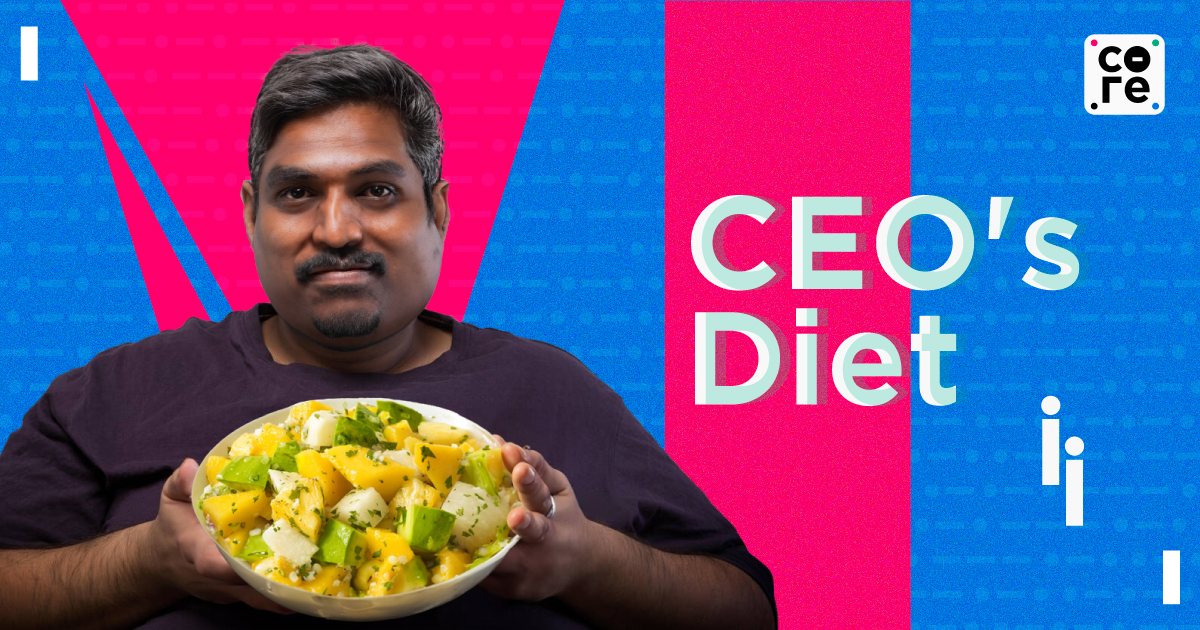
How To Eat Mangoes This Summer Without Spiking Blood Sugar Levels
It's not advisable to substitute a standalone meal with mangoes, as it is as good as injecting pure glucose into your bloodstream.

A few days ago, in response to my tweet on the recipe for instant mango ice cream, someone said, albeit without meaning harm, “fructose kills more people than cigarettes”. It got me thinking about how fruits are getting a bad reputation these days as fructose awareness catches momentum.
🥭The secret to the easiest homemade mango ice cream
— Dr Nandita Iyer (@saffrontrail) April 29, 2024
Zero-effort, just 2 ingredients, only fridge and mixer needed
1. Peel and dice ripe mango into small cubes. Freeze the mango cubes for 2-3 hours.
2. For one cup of frozen mango cubes, take 2 tbsp of milk powder.
3. Blend… pic.twitter.com/mqBJ28D7KI
Too much fructose is bad for the liver. The excess fructose in the liver gets converted to fat, which in the long run causes nonalcoholic fatty liver disease (NAFLD), a condition in which fat accumulates in the liver cells. But are fruits bad for us too? Are we not allowed to enjoy seasonal bounties like mangoes, which is perhaps the only saving grace of the brutal Indian summers?
Understanding Fructose
Fructose is a type of sugar found naturally in fruits. Concerns about its effects on health often stem from its presence in added sugars in processed foods and beverages rather than from whole fruits.
When consumed in the form of whole fruits, fructose is generally not considered harmful because it comes packaged with fibre, vitamins, minerals and antioxidants that support overall health. Fibre content in fruits helps slow down the absorption of sugars, including fructose, into the bloodstream, which can mitigate potential negative effects on blood sugar levels.
The nutrients in fruits also contribute to various health benefits, such as improved digestion, reduced risk of chronic diseases, and better overall well-being. Therefore, in moderation, whole fruits can be part of a balanced diet and are generally considered a healthy choice.
However, excessive consumption of fruit juices or dried fruits which may have higher concentrations of sugars and lower fibre content, compared to whole fruits, should be limited to avoid potential negative health effects.
A fruit-only diet has also become popular these days. Often, people opt for this diet under the impression that they are ‘detoxing’. People fasting for religious reasons also often go for eating only fruits. This should be avoided as consuming only fruits is not a balanced diet.
To answer the question at hand, it is definitely safe to eat mangoes in moderation.
Hacks To Not Spike Blood Sugar Levels
Here are some great ways to savour mangoes without causing spikes in blood sugar levels. These tips are beneficial for individuals with diabetes or insulin resistance, but they're also good for everyone to know.
End a meal with mangoes: I've seen people substitute a meal with mangoes, thinking they'll stay within their calorie limit. However, it's not advisable. Having mangoes as a standalone meal is like injecting pure glucose into your bloodstream without anything to offset the sugar spike. While the fruit does contain fibre, it might not suffice to manage the spike. Eating mango as a dessert after a meal is wiser. The protein, fats, and fibre in the meal serve as a buffer, slowing down the entry of sugar into the bloodstream.
Breakfast Mangoes: Combine a cup of diced mango with one tablespoon of chia seeds (healthy fats, fibre), two tablespoons of oats, instant, raw is fine (fibre, complex carbs), roasted almonds (protein, healthy fats, fibre), milk (protein, fats) and a dash of cinnamon (regulates blood sugar).
The bowl full of fibre, protein and good fats delays the spike in sugar that comes from eating a mango all by itself. And not to mention it keeps you full for a long time. Try it this way. I guarantee you will love it.
Mango Salad: Ripe mango is my favourite addition to salads. They bring sweetness, juiciness, soft squishy texture and vibrant colour to a salad. Ingredients like paneer, tofu or chicken in the salad add protein and avocados, blue cheese, extra virgin olive oil or nuts and seeds bring in the healthy fats. Leafy greens or vegetables can be added to the salad for fibre, all of which contribute to softening the impact of mangoes on your blood sugar.
Mango Ice Cream: What better way to bring joy than to eat mangoes in ice cream form? Here’s the mango ice cream recipe that gave me the idea for this column:
Peel and cube a mango and freeze it for two to three hours. Blend with milk powder in a mixer jar until it comes together like a scoop of ice cream (I recommend two tablespoons of milk powder for one cup of diced frozen mango). Serve immediately for a soft-serve consistency or freeze for an hour to get a more frozen consistency. Dr Neha Chawla (@thestrongdoc on X) had a good suggestion to use vanilla whey protein instead of milk powder to add a protein boost to the recipe. This makes it a high-protein frozen dessert perfect for these hot summer days.
So enjoy the different varieties of mangoes this season, but do remember that quantity is key and how you eat them makes a big difference to your blood sugar levels and overall health.
It's not advisable to substitute a standalone meal with mangoes, as it is as good as injecting pure glucose into your bloodstream.
Doctor, nutritionist, wellbeing advocate and columnist, Dr Nandita Iyer is the author of three bestselling books. She has been writing on nutrition, health and food for over 17 years. Since 2006, her popular blog Saffron Trail has been a major resource for healthy food and vegetarian recipes. You can follow her @saffrontrail on Twitter and Instagram.

